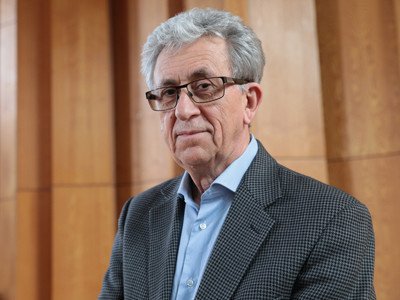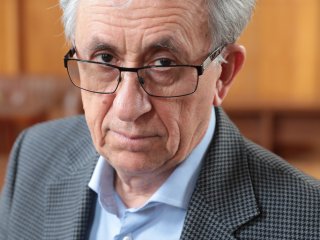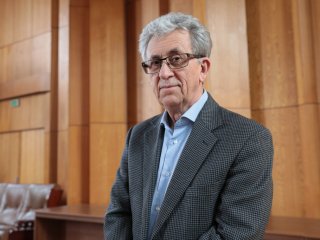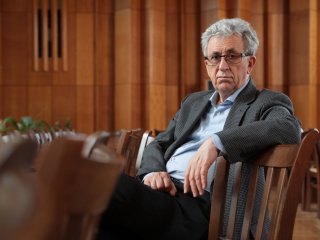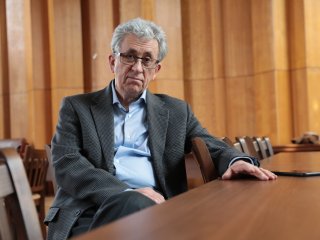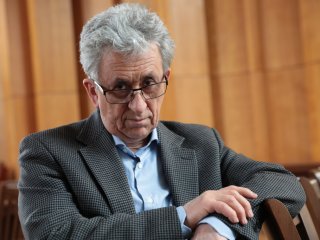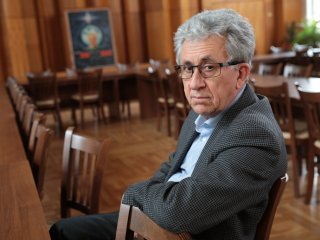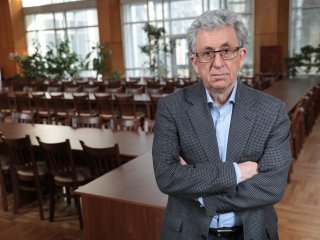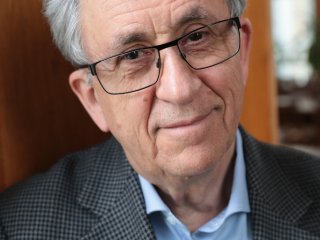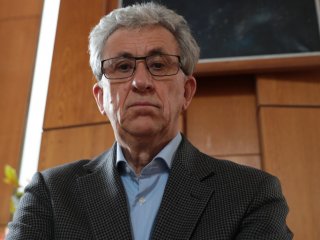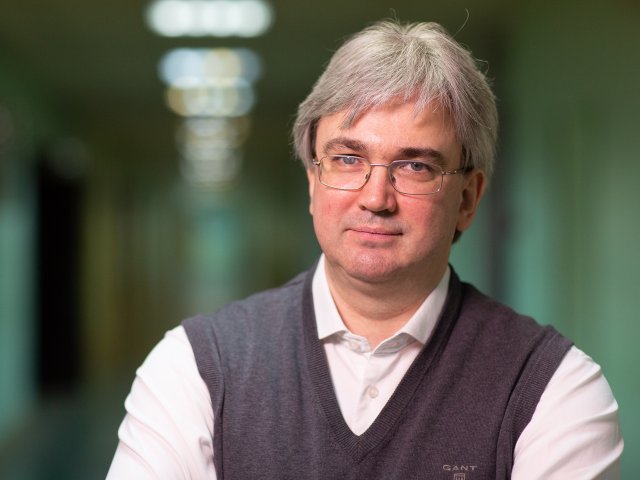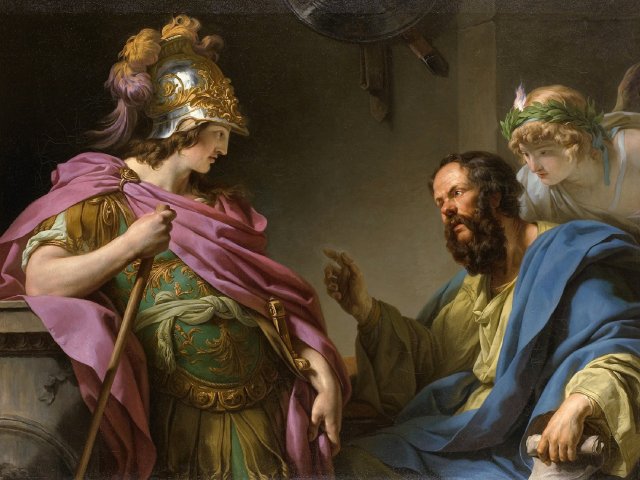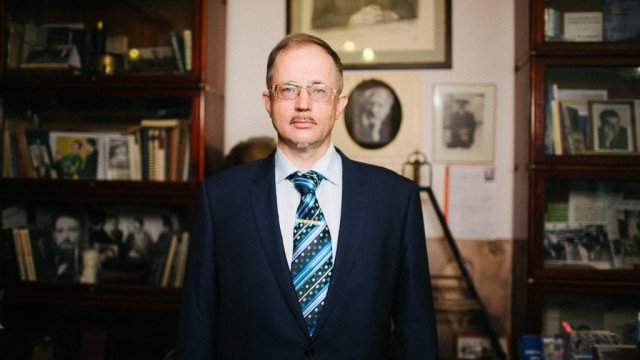Conversation with cosmonaut No 58 Oleg Atkov, who has performed the longest spaceflight at the time, doctor of medicine, correspondent member of RAS, designer and developer of new medical equipment and methods that the modern healthcare system is inconceivable without.
– Oleg Yuryevich, I know that you did not plan to become a cosmonaut looking forward to a medical career instead, though it took some time to become a physician. You had to finish a medical school and work as laboratory assistant at the medical station under a textile factory. Then, after having graduated from the medical institute, you started examining cosmonauts at the training center and decided that you were capable of making a spaceflight too. Am I right?
– No, it worked out in a different way. Yes, I really worked as laboratory assistant and studied at a medical school for a year, as I could not enter the Kuybyshev Medical Institute at the first attempt. Next year, I entered the Crimean Medical Institute and studied in Simferopol for a year. Then, I moved to Kiev. As for the fifth and sixth years, I finished them at the First Moscow medical Institute. After that, there were internship, postgraduate studies and smooth career growth at the Myasnikov Research Institute of Cardiology, where I had worked for almost 30 years.
– Why did you choose cardiology? As far as I know, you decided to become a physician under the influence of your aunt, a neuropathologist.
– My beloved red-haired aunt Lena did spur me to choosing medical profession. As for cardiology, I probably chose it because book Thoughts and Heart by famous cardiac surgeon Nikolay Amosov came out at that very time, as well as the trilogy devoted to physicians by Yuri German which also left a lasting impression on me. I was an example of soviet child brought up on the right literature and having well-educated parents, so there were no hesitations at all. However, the head of every first year student is probably spinning, especially if he/she lives in Crimea.
Then, I left for Kiev and met people who introduced medicine to me there. I started dealing with research in the area of cardiovascular system pharmacology like crazy. At that time, I wanted to become a heart surgeon and spent all my free time in Batyeva Gora, at the clinic of Nikolay Amosov. There, I got acquainted with a number of surgeons and specialists in the field of medical cybernetics who were working on the problem of artificial heart. I was bursting to go into action at that time.
My first experimental research paper as a student came out right at the end of my second year at the medical institute, and it became clear to me that medicine, cardiology is my vocation.
Then, I moved to Moscow and started performing a serious work under the guidance of famous pharmacologist Natalia Kaverina, daughter of writer Veniamin Kaverin. I got acquainted with her husband, professor Khayutin, outstanding physiologist and disciple of Chernigovsky. Being the fifth and sixth year student, I would hang out at their laboratory after studies and was happy about it.
Then clinical internship followed, and I found myself at the Institute of Cardiology working under the guidance of brilliant cardiologist, professor Nurmuhamed Muharlyamov. At that time, he was a lonely unconnected person and would call us his children – sons and daughters. We adored him.
It so happened that the main with voice which the whole country knew well was among his friends. I mean the wonderful baritone of a charismatic person who was the host of TV Travelers’ Club, the soviet television show!
– Do you mean Yuri Senkevich?
– Yes, Yuri Senkevich. At that time, he was a department head at the Research Institute of Medico-Biological Problems. Once, we sat working – at that time serious equipment, an ultrasonic instrument which was the first in our country was entrusted to us – and heard the familiar baritone in the corridor. Then we were called to the next room, and he told us, “Look, cadets, there is a task which requires your knowledge, skills, as well as modesty, as this work demand keeping one’s mouth shut.” It was in 1975.
Two cosmonauts who had just returned from the space station were brought to our center a week later. I mean Boris Volynov and Vitaly Zholobov.
Volynov is a legendary person who has gone through a long period of training. He was the last member of the first cosmonaut team to make a spaceflight. The flights he performed were not at all easy. During the first one, he just escaped death. An abnormal atmospheric entry happened, and the impact was so strong that he lost almost all of his teeth – they were torn off the roots. During the second spaceflight, when he stayed at Salyut space station with Vitaly Zholobov, Vitaly started suffering from serious health problems – retrosternal pain, headache and insomnia. It became clear that the situation could hardly be changed for the better with the help of medications they had. Thus, they had to stop the flight before the scheduled date. However, we learned about it only later. At that time, the newspapers would write that everything was fine, as the cosmonauts had come back and felt well.
– What did you manage to find out with regards to his state of health?
– They were brought to Muharlyamov, he examined them and said, “Well, I see no evident problems, nothing that catches the eye. Let my boys examine them.” We found no inconspicuous heart problems. However, Zholobov’s blood circulatory system response was different from the one Volynov showed. As it is accepted to say among the academic community, his tolerance was much poorer, i.e. he tolerated the tests much worse. It became clear that he suffered from impaired regulation and, from all appearances, disorder of peripheral blood circulation system link. That is what we wrote in the medical conclusion. This data looked to be fine with everybody at the medical department of the Star City, so they would call from time to time and say, “We would like Oleg Atkov to provide an advice. It would be even better if he came here with his hardware.”
– Why Oleg Atkov?
– Well, my friend Yuri Belenkov (currently, he is an academician) told me, “Look, Oleg, my candidate’s thesis is near delivery, and I am very busy. Can you deal with this task alone?” I agreed. So, I had to play both sides of the fence. The first side was about my research at the Institute of Cardiology, while the second one dealt with working with the Star City. Everybody knows that the appetite comes while eating. So, they once said, “Look, we will write a letter to your management and transfer you to Baikonur, where you will take part in post-flight examination of all those who performed a long-duration flight.” It was exactly the time when long-duration space expeditions began. Thus, your faithful servant had examined the members of all expeditions ranging from the 49-day-long flight performed by Volynov and Zholobov to the expedition of our predecessors Berezovsky and Lebedev which was 211 days long.
– Looking at them, you thought that you might as well perform a flight, didn’t you?
– No, it was not like that. This is what actually happened. I examine the cosmonauts with the help of the instrument, and they say, “Look, Oleg, they recruit physicians to the team. Would you like to try?” You know, when such an offer is made to a young, 25-year-old doctor, one can hardly expect him to refuse. I ask, “Do you think I can qualify?” They answer, “Why not. Just give it a try.”
So, to my utmost surprise, without telling to my research supervisor (only my wife knew about it), I qualified for membership in the cosmonaut team on medical indications during my postgraduate vacations. I told about it to my supervisor only in September, when it became clear that I have qualified.
– What was your wife’s attitude to it? As far as I know, she is an ophthalmologist.
– We were the second year students in Kiev. Then, she left for Moscow. That is why I moved to Moscow. This year, we celebrate our silver wedding. Naturally, she did not like my idea of performing a spaceflight. However, she knew me very well and did not object. She said, “It is your life, so it is up to you to decide.” She understood that it is impossible to make me change my mind and left me to my own devices.
– You planned to make a spaceflight with Feoktistov for medical supervision of an elderly cosmonaut.
–Yes, it is so. Yet, the moment of making a spaceflight with K.P. Feoktistov came only 5 years later, and for all these five years, I had to stay in shape by way of training. Besides, I had to defend my thesis to be fit for my job. I did not get transferred to the Institute of Medico-Biological Problems, though they were insistent in inviting me, as I decided that space physician is not only a physiologist and scientist, but should be ready for examining the patient’s state of health during and after the flights. Such a specialist should be not only a research worker, but practitioner as well. That is why I did not get transferred.
In 1982, I answered a phone call from the reception office of my boss, Academician Chazov and heard in the receiver, “You have to come to the director’s office. Chazov tells me, “You know, Academician Glushko has called me and said that they need a physician for making a spaceflight with Feoktistov.”
He was an elderly cosmonaut, very experienced, and had a super-mission. Konstantin Feoktistov was the head designer of the space station and bore personal responsibility for some systems, so he wanted to make sure personally that the system he had created functioned perfectly. Thus, he persuaded general designer Valentin Glushko that he should perform the spaceflight. Well, Glushko agreed. They decided that a physician, ideally cardiologist, ought to accompany him. So, they remembered me.
However, after two-three training sessions together, Konstantin Feoktistov calls me at home, “Oleg Yuryevich, can you drop in at my place shortly? I need to talk to you.” His wife opens the door, “Let me see you to his room.” Feoktistov is sitting pale as a ghost. I ask him, “What has happened?” He answers that he is sick and describes his state of health. I start palpating his belly and find out that he suffers from stomach bleeding. He has had gastric ulcer in his past medical history. I say, “Look, Konstantin Petrovich, from all appearances, your ulcer has perforated. As a physician, I have to take you to hospital, where they must make an operation on you within 24 hours.” “Well, Oleg Yuryevich, I will have a thorough rest and feel better.” “No, let me invite my friend, a brilliant surgeon, and he will examine you.”
Well, my friend arrived, examined Feoktistov and confirmed my diagnosis. Next day, he got operated on and written off the spaceflights. As for me, they left me in the training team, no matter how strange it may seem.
Several months later, I successfully passed the exams, and the state commission officially enlisted me in the cosmonaut corps. It was at that time that an offer to take part in the spaceflight, longest at the time, was made to me.
– You spent almost eight months in space, didn’t you?
– Eight months less three days. I gave a short answer to Valentin Glushko, “It will be an honor for me.” He moved his lips (he had very thin lips), “It will be an honor for me… Well, okay, we will meet later. Good bye!” He had a high-pitched voice. I left and continued training, as a member of crew this time.
Then the training sessions in the Star City with all their twists and turns, joys and problems, etc. followed. One of the most memorable events during the training period looked as follows. They say to me, “So your men act as backup cosmonauts for Titov and Strekalov. You all will go to the launching site, there will be a direct video contact with them, and you are to look from the observation deck at what you may expect later.”
It was the very off-nominal situation, when the rocket burst into flame. The emergency escape system managed to lead the spacecraft with the crew away from the burning rocket along the trajectory 2-3 seconds before the catastrophe. The spacecraft landed at the distance of 3-4 kilometers from the start, while the rocket exploded. Rattle, flame, smoke, fire, etc.
– Didn’t you change your mind about making a spaceflight after such an uncomfortable sight?
– I heard command, “Everybody must leave observation deck immediately.” We run in the opposite direction and I hear a snatch of conversation of two men running behind, “I wonder who is next.” No, I felt not a shade of doubt. As far as I remember, I did not even tell my wife about this incident.
– You bet! I know that you made a number of unique medical experiments during that flight, which was really the longest at the time. What kind of experiments were they?
– The flight program was composed of ideas generated at our cardiologic center. Some time ago, we designed a unique medical instrument – echocardiograph – which every physician and patient knows today. At that time, however, it was an innovation that we developed jointly with the colleagues from the Institute of Medico-Biological Problems. Two brilliant engineers – Elena Milova, may she rest in peace, and Galina Fomina worked there at that time. We designed the instrument together, while the technical performance belonged to one of research institutions – the Research Institute of Precision Instruments located the town of Korolyov, Moscow Region. This instrument was installed on Salyut-7 spacecraft that was launched after the sixth model, while the first crew – Berezovoy and Lebedev – tested it. I instructed them myself as to where to install and turn the sensor, what kind of image they would see, etc.
Well, they started the spaceflight, and a couple of months later, in May time was allocated for us to perform the testing and obtain the first image. I arrive in the Mission Control Center (MCC), while the cosmonauts say, “Doctor, we have forgotten everything.” “Okay, guys, let begin with counting ribs again. Do you remember where the fourth intercostal space is? I mean the one to the left from the breastbone. Do you feel the collarbone? Okay, lets us proceed with the intercostal spaces.” And so on.
So, they switched on the device, installed the sensor and quickly remembered everything. Then, the picture appeared. I say, “It is the image of aorta which we need.” It was the first session of space teleradiology in the world. The first image of echocardiogram was received from the outer space using our instrument!
When I made the spaceflight myself, I had this very instrument and another device designed by the Institute of Medico-Biological Problems jointly with the French scientists. Thus, I was armed with serious weapons and could take advantage of them. WE had worked out the program for this very equipment and several experiments in gene engineering. We were to perform electrophoresis there, and make experiment Membrane with washed erythrocytes. In the course of the space flight, one more idea was generated: I understood that everything could happen in outer space.
Therefore, I decided to investigate into the effect of nitroglycerine during the flight. If, God forbid, we had to use it in some circumstances (to arrest, say, retrosternal pain, angina attack, etc.), we should know what to expect. I discussed this issue with MCC and Institute of Medico-Biological Problems (IMBP) and obtained their approval.
We have worked out the design of experiment, and I was taking the readings which registered the brain blood flow and monitoring the heart’s response. As nitroglycerine causes blood flow to the head in many patients, I invented how to mitigate these adverse effects. That is why the first experience of space clinical pharmacology also belongs to us. It happed in 1984, while the first session of teleradiology took place in 1982.
– What about the situation of taking your own blood samples?
– I was a risky affair of a sort. I was taking vein blood samples from my colleagues, commander and onboard engineer and studied them in the conditions of space flight. Once, they started joking, “You always draw blood from us. What about your blood samples? Can you take them too?” So, I had to prove that I can do it. I said, “Okay, commander, take the camera and record the process. And you, engineer, fit the needle into the syringe. When you see that a drop of blood appears, please make the docking.”
– So, you use the space terminology even now, don’t you?
– syringe and needle – and pierce my vein. Thus, we took the blood sample and I processed in on the centrifuge having isolated the plasma. When the experiment was over, we had to send two plasma samples. I had to say, “You will get three plasma samples.” They ask, “Who was the third?” I answer, “Well, get ready for watching a video, yet drop your emotions.” Breathless silence followed at the MCC. Finally, they say, “Well, what can we say? Certainly, the winner is always right, but you should be aware of what might have happened.” Fortunately, it worked out successfully.
– The guys at the MCC probably thought that you had contacted the aliens, and the third blood sample belonged to one of them. I have heard that you met angel-like entities in space. Is it true?
– Overnight into April 1, I decided to issue a wall newspaper in order to make the crew happy for a while. I invented a joke. It was generated late at night, long after midnight, when my colleagues were asleep. The story was as follows. It was a dialogue between a cosmonaut and MCC. Cosmonaut says, “I looked into the viewing port and saw a dragon-like creature with three heads, long tail and two wings at a distance of about three kilometers from the spacecraft. What shall I do?”
Silence at MCC. I repeat, “What shall I do?” They answer, “Please smile at it, while we decide what to do.” I invented this story and shared it with MCC. I have a vivid recollection of this revolution. We were flying over the northern part of USA, and research vessel Cosmonaut Yuri Gagarin was moored near the coast of Newfoundland.
Well, the members of my crew woke up in the morning and saw my newspaper. I was waiting for praises, but failed to receive them. They said, “Okay, the idea is not bad, but we should make this newspaper together.”
This story failed to remain strictly off the record, between us and MCC, but seemed to have leaked out. A year later, my American colleague, an astronaut who had landed on the Moon, came up to me and showed me the newspaper, “How can you comment on it?” I read in the article the story about angel-like entities as told by Dr. Atkov. I say, “Look, do you know what kind of date April 1 is?” He says that he knows it, but without smiling. His face looks serious. I explained the background to him again. He says, “I always knew one should not believe Russians.”
– Do you mean that the Americans were eavesdropping on your conversation with MCC?
– It looks so.
– Though it is a joke, much has been said about the cosmonauts experiencing altered state of consciousness during long-duration space flights. Have you ever experienced it? I mean hallucinations, strange visions, voice, etc.
– These can hardly be called hallucinations or strange visions. It probably depends upon one’s sensibility. Are you capable of feeling, say, someone’s glance at you back? Do you feel it, when someone stares at you from behind?
– Well, it happens sometimes.
– I also felt that somebody was staring at me from behind a couple of times during the flight.
– And there was no one behind you, wasn’t there?
– Nobody was there from our perspective. I do not know what it was. And nobody knows it. However, I had such sensations a couple of times. I know one thing: in all appearances, we are not alone in the universe. However, we look like savages for them. What happens on the Earth? When we performed our space flight, Iraq was at war with Iran. We saw an oil depot terminal bombed, clouds of smoke were rising into the atmosphere, and the smoke plume reached Ceylon. It means that we have an unwise and aggressive enough civilization on our planet. We are all connected with each other, tied with one chain, yet destroy each other and ourselves. If the aliens exist, they are not necessarily aggressive. They do not have to interfere in our affairs and take space away from us.
– They may just look at us from behind, right?
– Yes, they may just look at us from behind. I think so.
– Having returned to the Earth after the long-duration flight to the joy of your wife and entire family, you did not think about stopping with your research. On the contrary, you became a doctor of medicine and member of the Academy of Sciences…
– I returned to my cardiologic center where I belong to. After that, I twice applied for taking part in orbital research projects, yet they would just say, “Thank you.” Then, Valentin Glushko called me and offered to perform an eight-month-long flight, but I declined the offer.
– Why?
– If I agreed, my backup specialist would have never made a spaceflight. So, I decided to let Valery Polyakov to perform a flight to space. Glushko said, “Oleg Yuryevich, I make such offers only once.” I replied, “I know, Valentin Petrovich.”
– Have you ever regretted it?
– No. I just could not block the way for other team members. The thing is that I was passing the qualifying tests with eight good guys who remained at the IMBP as backup specialists. All of them looked forward to performing a space flight. So, I turned the problem over and decided that I was not morally entitled to interfere with their hopes. Then, the program involving space physicians was closed.
– Please tell me about your subsequent research. Which studies do you consider the most valuable? I know that you have won both the State Prize and Government Award.
– As I am interested in science in general, not only its clinical aspect, we did research into the topic of telemedicine along with ultrasound. We did this research jointly with brilliant specialist Valery Stolyar, physician and engineer. He works as head of telemedicine and medical informatics department at the Russian University of People’s Friendship (RUDN). We were developing the telemedicine concept to embrace the whole nation. In 1990s we relished this idea like crazy. We would visit Moscow Mayor’s Office and talk to deputy of Yuri Luzhkov. I talked to rectors of universities, very respectful people. However, they said, “It is required neither in Moscow, nor elsewhere.” Put it shortly, the officials did not need telemedicine at that time.
However, we did not give up. As I cooperated with the International Space University in Strasbourg, we started developing this topic with them, because they were interested in telemedicine very much. WE carried out a very serious research project devoted to telemedicine support of emergency medical conditions on board the International Space Station (ISS). It was an international project with participation of the French, our team and Germany-based Johannes Gutenberg University Mainz.
In 2002, I started working at the Ministry of Railways being in charge of healthcare system there. The Ministry operates on gigantic territories and employs very many people, so we had to tie them up, and telemedicine appeared to be the only sound technology that allowed for implementing the right methods and practices. I had to say, “Look, colleagues, the hospitals located in Ussuriysk and Chasovaya Street in Moscow should work using the same protocols and standards, equipment, specialists, etc.”
– So, telemedicine is also your innovation, isn’t it?
– Yes, we founded the Russian Association of Telemedicine at that time. These ideas were put into practice in the form of five trains equipped with not only medical facilities, but telemedicine complexes as well. With the help of them, one could not only transfer information about a patient from one railway car to another one, but transmit data via the satellite or fiber-optical line and consult this or that complicated case.
Working for RZD, I paid attention to the fact that there were things making impact on a working person in the form of certain natural phenomena. I mean the so-called geomagnetic storms bursting out after solar flares especially in the north polar region. So, we designed a special Faraday cage and would create electromagnetic storms there looking at what happened if the natural electromagnetic field was reduced. In this way, we can learn what people should expect on Mars or the Moon. It was a very interesting research project.
– What should they expect there?
– Microcirculation changes start at the end of the very first hour. Besides, there are other problems. I mean that the blood circulation system starts adjusting to new conditions immediately. There must be a function sensitive to changes in electromagnetic field level. So, I have studied these issues too.
– What if Rogozin called you today and said, “Oleg Yuryevich, what about making a two-year-long space flight? Different equipment, different topic of research…” Would you agree to pass medical examination again and perform the flight?
– I have made a different sort of flight. At 65, I started thinking about some new hobby. So, I have successfully completed a course at the aircraft training center and obtained a pilot’s license. In summer of 2018, we flew round the globe along the polar circle on board a hydroplane having crossed the territory of nine countries and three oceans. You can hardly surprise me with questions and offers.
